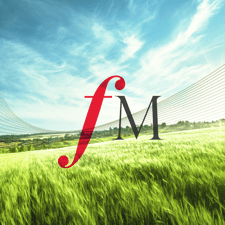Pure Handel - European Union Baroque Orchestra
The young members of the European Union Baroque Orchestra inject fresh energy into the Water Music and early works by Handel. John Suchet's Album of the Week, 20 May 2013.
Each year, the European Union Baroque Orchestra (EUBO) offers the experience of performing together to a new group of talented young musicians. Despite re-inventing itself every year, including preparing all its programmes from scratch, one composer remains central to the EUBO experience - George Frideric Handel.
On this scintillating new CD, EUBO particularly highlights Handel's early compositions, written while the composer was living in Rome and was about the same age as most members of today's orchestra.
The CD opens with the secular cantata "Ero e Leandro" written when Handel was just 22. As there is no overture to the cantata, EUBO director Lars Ulrik Mortensen has added the overture to Handel’s "Admeto".
The cantata is overshadowed though by a fresh take on Handel's well-loved Water Music suite. “For me – and presumably for the majority of today’s listeners – the sounds of Handel’s Water Music are among the most familiar of Baroque music," says Mortensen. "But sometimes this very familiarity may hinder our appreciation of the novelty and freshness of a particular work. I have tried to pretend that the music is completely unknown to me, and this game has certainly reminded me of important features in the Water Music that I had previously forgotten: the wonderfully unpredictable whirlwind progress of the second half of the Ouverture, the well-timed shock of the oboe solo, the inimitable “Handel-colour” of bassoon and low strings playing melodies in the second minuet, and much more...”
The CD also features a dramatic, sacred cantata "Ah! Che troppo ineguali" composed during Handel’s early years in Italy at the beginning of the 18th century. Along with the other cantata featured here, it is a work of profound emotional depth. The CD ends with a beautifully crafted aria sung by Swedish soprano Maria Keohane who herself expressed the wish to record "Tu del Ciel ministro eletto". It provided a fitting conclusion to Handel’s first oratorio "The Triumph of Time and Truth" and to this thrilling disc.









































